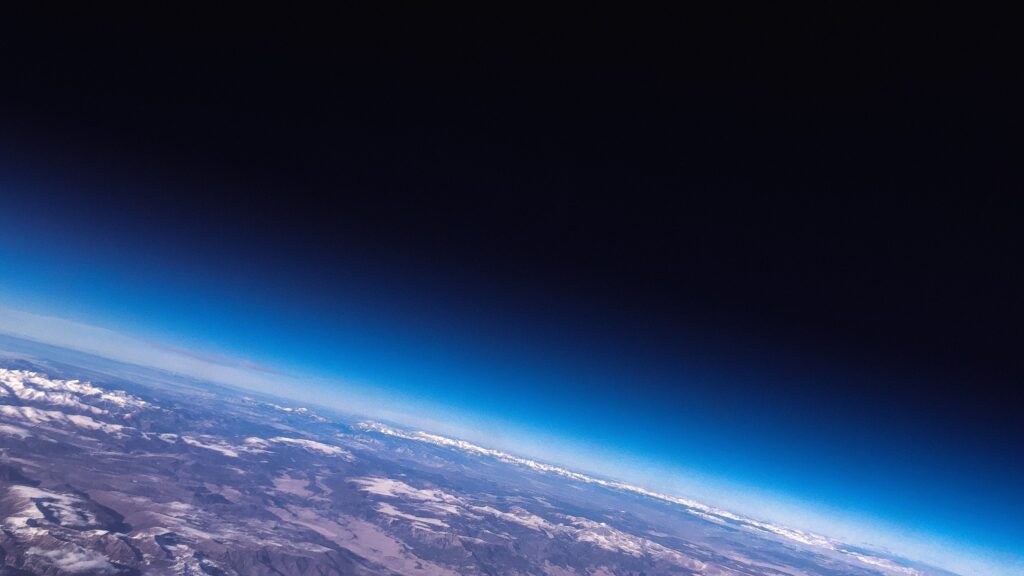Ehtesham-ul-Islam, Student Jamia Ahmadiyya UK

On 30 May 2020, the world witnessed a remarkable feat of human ingenuity that captured the attention of newspapers across the globe. Against the backdrop of a relentless pandemic, a historic launch unfolded, signifying a turning point in the annals of space exploration. The stage was set at the Kennedy Space Centre in Florida, where the Crew Dragon, a spacecraft crafted by SpaceX, soared into space with two NASA astronauts on board, bound for the International Space Station. (blogs.nasa.gov/kennedy/2020/05/)
The triumphant success of the Crew Dragon marks the dawn of a new era, one that holds the promise of opening the vast frontiers of space to the wider world. With this technological marvel, SpaceX has propelled the future of human spaceflight towards a horizon filled with infinite possibilities. By introducing reusable launch systems that slash the average cost of space travel by a staggering five million dollars, the door has swung open to a realm once accessible only to a select few. As a result, more opportunities emerge for new equipment, eager manpower, and intrepid explorers to venture beyond our earthly confines, embarking on captivating journeys into space.
This, of course, is very beneficial for the sciences and the overall progress of humanity’s understanding of the universe. But you may be wondering: “Why am I reading this in an Al Hakam article? Why is this important to me as a Muslim?”
One of the fundamental principles of Islam lies in the unwavering love and devotion to the Almighty God. Our purpose in this world is intricately intertwined with the worship of our Creator. While the act of offering the five daily prayers undoubtedly serves as a steadfast pathway towards fulfilling this objective, there also exists a remarkable opportunity to further elevate our worship by nurturing and fortifying our belief in the Divine.
By deepening our understanding of the Creator, we embark on a transformative journey, strengthening the sacred bond between ourselves and the One Who fashioned us into existence. Through this process, our worship becomes not only an obligation but a profound expression of love, reverence, and gratitude, propelling us towards a state of spiritual fulfilment and harmonious alignment with the divine purpose of our existence.
So, how can we attain this deeper understanding of our Creator and thereby elevate our worship?
Islam has always beckoned us to ponder over the breathtaking nature that surrounds us, where the signs of the Creator unfold in a symphony of flawless creation. And what can be a more compelling testament than the unfathomable expanse of the cosmos, a realm so vast that our minds strain to comprehend its entirety, a tapestry of stars that outnumber the grains of sand adorning Earth’s every beach, and a myriad of planets, each a masterpiece more captivating than the last?
“And We have, indeed, made mansions [of stars] in the heaven and have adorned it for beholders.”(Surah al Hijr, Ch.15: V.17)
While addressing the International Ahmadiyya Muslims Research Association (AMRA) conference, Hazrat Khalifatul Masih Vaba, referencing the Promised Messiahas, stated that “studying physics, astronomy, and the sciences can lead a righteous person to Allah the Almighty. In doing so, one can appreciate Allah’s beauty as one learns and gains insight. True believers guide others with scientific knowledge and can prove God’s existence.” (www.alhakam.org/a-challenge-for-ahmadi-researchers-hazrat-khalifatul-masih-addresses-members-of-amra/)
Therefore, it is imperative not only to seek spiritual insight but also to deepen one’s understanding of the sciences in order to reinforce one’s belief in the existence of God. It is a prevalent misconception among the faithless that religion and science are irreconcilable adversaries and that the advance of science will eventually disprove religion, but this notion couldn’t be more erroneous. Who can possess a more profound understanding of creation’s intricate mechanisms and sciences than the Creator Himself?
Promised Messiahas made a conclusive statement regarding this matter in his meeting with Professor Clement Wragge. He stated:“However far science might progress, it shall never be able to falsify the teachings and the principles of Islam.” (“From the Archives: Professor Wragge’s Interview with the Promised Messiah (as)”, The Review of Religions)
By delving into scientific knowledge and findings, we uncover compelling evidence that bolsters our belief in the Divine and reveals the extraordinary harmony between religion and science. Whether it’s the creation of the universe or human embryonic development or among numerous other examples, we witness the magnificent coherence between scientific discoveries and the teachings of our faith.
Hazrat Musleh-e-Maudra stated:
“The Promised Messiah showed convincingly that modern science and philosophy cannot overawe the Holy Quran. They cannot show any contradiction between the Holy Quran and reason. Science is concerned with nature, the handiwork of God. The Quran is the Word of God. Both His handiwork and His Word are His. There can be no contradiction between the two. If ever the Word of God seems to go against the facts of nature, it must be because it is not His true word, or if it is it cannot have been properly understood. The real Word of God cannot teach anything against the facts of nature.” (Invitation to Ahmadiyyat, p. 315)
In the journey of faith, science holds a pivotal role in its advancement. As scientific discoveries unfold, they shed light on the profound truths embedded within the Quran. In an era marked by the rise of atheism, the need to substantiate the existence of God becomes increasingly significant.
As Ahmadi Muslims, we should therefore ardently seek knowledge in the sciences, enabling us to provide compelling evidence of the Divine. May Allah bless us with prosperity in all avenues of beneficial knowledge, allowing us to fulfil our purpose to the fullest extent. Amin.
“In the creation of the heavens and the earth and in the alternation of the night and the day there are indeed Signs for men of understanding.” (Surah Aal-e-Imran, Ch.3: V.191)

